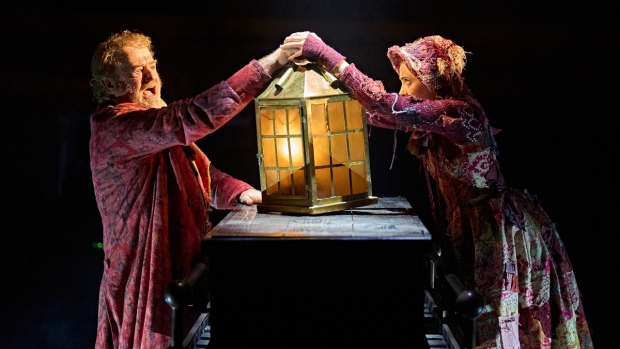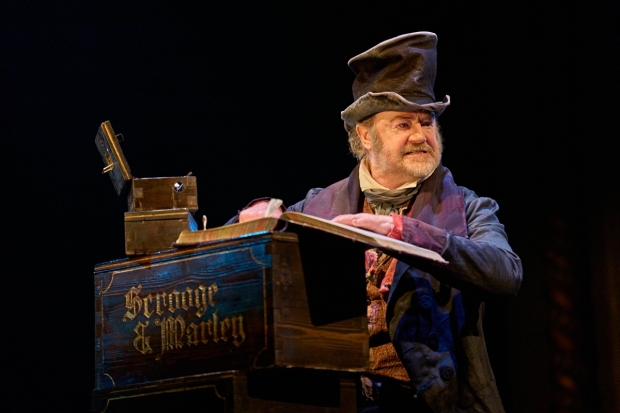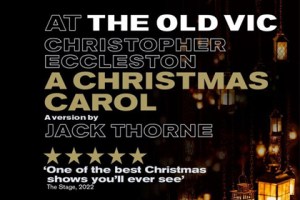”A Christmas Carol” at the Old Vic starring Owen Teale – review

© Manuel Harlan
It is all – even in November – both magical and evocative of the celebratory season. It is also one of those productions where everything – the adaptation, Matthew Warchus’s fluent and engaging direction, Christopher Nightingale’s score and Rob Howells’ in-the-round design lit by overhead lanterns – comes together to create an absorbing and assured telling of a story that has arguably become over-familiar.
All the elements make you listen and learn afresh to Charles Dickens’ eternal verities about a world where the prosperous and greedy neglect poverty and want at their peril.
In fact, in this stylish two-hour telling, Thorne has taken considerable liberties with the original, giving Scrooge a backstory of a debt-laden alcoholic father to explain his own avarice, and making Belle (his youthful love) into a more substantial figure of regret. The thrust of the narrative contains a 21st-century sensibility, with the emphasis on love and self-knowledge.
But the ghosts of Christmas past, present and future are all present and correct, in the shape of three women who push into the consciousness of Owen Teale’s Scrooge through spectral doors that are supposedly bolted against them but which also represent the prison of his own misery. Scrooge recognises their purpose – “this is manipulative,” he complains – and keeps arguing that he is simply a realist, a man doing his best in a harsh world.

© Manuel Harlan
One by one, however, his defences fall as he begins to understand the harm he has done and how the compassion represented by Christmas should be shared throughout the year. Teale emphasises his sense of his own reasonableness; he is quite an urbane Scrooge. Yet when finally he recognises the truth, his pleasure – “I’m light as a feather, as happy as an angel” – breaks out in a dance of infectious glee.
Around him, many actors play multiple parts as the story unfolds with its own dream-like logic. Melissa Allan is particularly affecting as Scrooge’s sister Little Fan (also the ghost of Christmas future) and Lydia White is an upright and honest Belle, full of affection but not of regret. As Tiny Tim on the evening I went Freddie Marshall-Ellis, manages to win the requisite ooohs and aahs without ever being sentimental.
But by the time the Cratchitt’s new Christmas dinner is being prepared in front of our eyes, you’d need a heart of stone not to feel a little bit warmer. The message of Dickens that a society that neglects its poorest members is one that has lost its moral compass is underlined by a leaving collection for the food charity City Harvest, a gentle reminder that people will go hungry in London tonight just as in the Victorian era.













